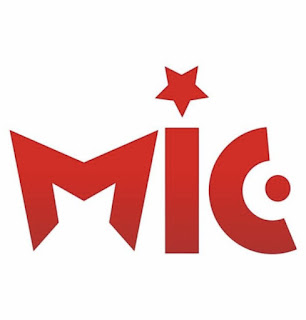Camerata Delft kick up a storm in Scheveningen
The
Camerata Delft is a superb ensemble of ten professional musicians based in the Netherlands. I heard them yesterday in a concert celebrating their fifth year of playing together: on this form they should be giving concerts for many more years to come.
I do not
know any of the musicians personally but it is quite clear just from one
concert that their individual technical facility is prodigious and they
communicate with each other with or without a conductor with a deep and shared
understanding of the music. I heard the Camerata Delft at the Muzee Museum in Scheveningen in The Hague, a museum which makes use of a 100 seat hall for classical concerts
on Sunday mornings. The acoustic in the hall is ideal for chamber music and on
this occasion the ensemble made the most of the intimate setting by placing their
two singers and occasionally instrumentalists around the room.
The
programme was billed as Music Old & New, with Baroque high on the list.
When I turn up to a concert of Baroque music I fear I am going to have to
listen to The Four Seasons or other such chestnuts yet again. Fortunately that
was certainly not the case as the programme was
a really intelligent sequence around the theme of the Western wind, the sea
and storms of, on the one hand, 17 &
18 century composers, Telemann (Watermusic), Purcell (Tempest suite), Vivaldi
(La Temepsta di mare), Rameau (Zephire suite) and Monteverdi (Zifiro Torna),
and works by two living composers, van Deurzen (Uit de Brief) and Clark
(Westron Wynde).
The playing
throughout was excellent, and so was the ensemble, as I have said, and I should
not forget to mention also the beautiful singing by Leonore Engelbrecht,
soprano, and Hans van Dijk, tenor. The string players are Quirine van der Hoek,
Machteld van Delft, Siebe Visser and Lotte Beukman, Elly van Munster, thorbo;
Andrew Clark was conductor and harpsichordist, and the wind players are Douwe
van der Meulen, oboe and Imre Rolleman, flute.
The voices
featured in the two contemporary pieces. Patrick van Deurzan, b 1964, uses the
theorbo to accompany the soprano in his
Uit de Brief. I enjoyed this piece for its use of 20th century
harmonies on a 17 century instrument. I
asked myself whether he wrote the piece for this ensemble and also my mind
wandered slightly into imagining the same music played on a guitar: would there
have been a touch more warmth in the sound?
Westron Wynde,
conducted by the composer Andrew Clark, b 1956, stole my heart. The writing,
for string quartet, oboe, flute and yes, theorbo and soprano and tenor, was
exquisite and I was deeply moved, and I was not the only one in the hall I am
sure. The text is taken from the 16 century, as far as I can understand, and
the use of vocal sounds to conjure the whoosh of the wind to top and tail the
piece, and the beautiful use of the two
voices, placed around the room to create an echo effect, was powerful. Those of
us who attended Sunday’s concert were especially privileged: I understand this
was the third concert by the ensemble in the same weekend, after performances
in Delft and Rotterdam. So we were witnesses of that precious and unique point
in a work's history where it is still absolutely fresh and new, yet is well
enough known and performed to be a fully realized performance.
I will now
search out more music by Andrew Clark: I want to hear more, and if I can hear his
music played by Camerata Delft , so much the better.
.jpg)


Comments
Post a Comment